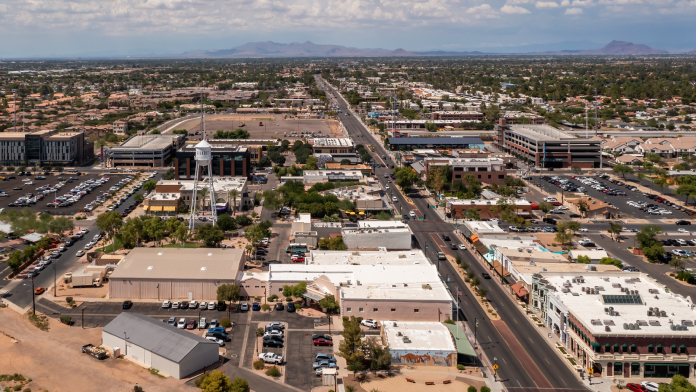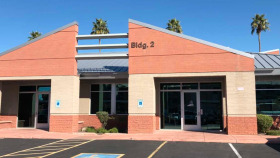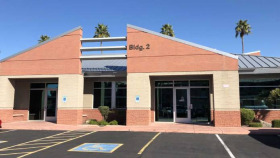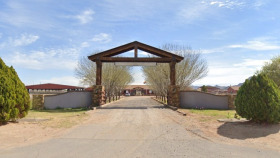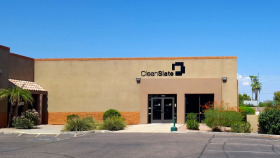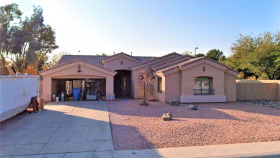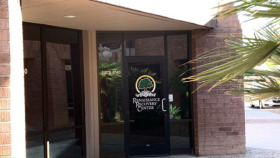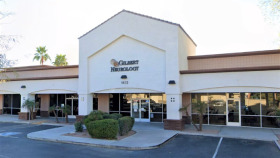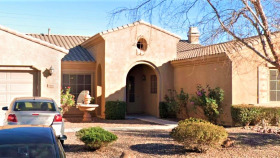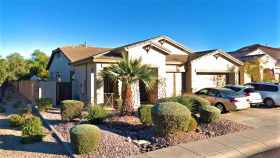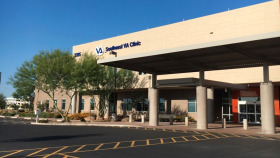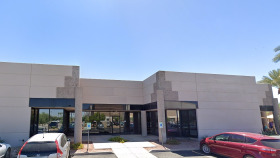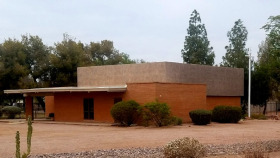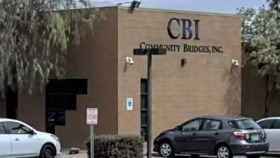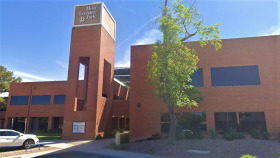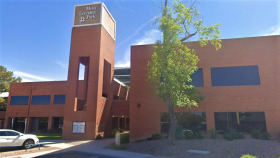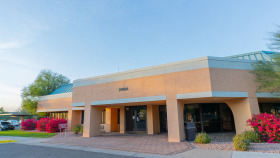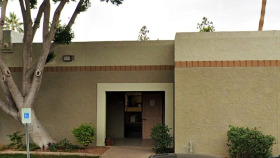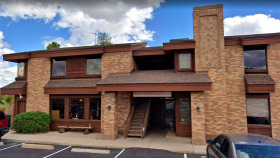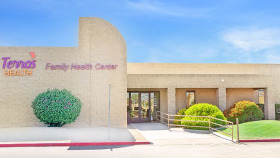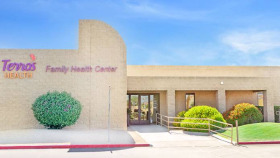Expert Insights
I recently heard that Gilbert is going to receive another large opioid settlement payment that could raise several hundred thousand dollars. Unfortunately, despite already receiving $281,434 not a penny has been spent on addiction services, because the council are considering what to spend it on, even though it is earmarked for opioid programs. With nearly 4,000 fatal opioid overdoses a year in Arizona alone, 20 fatal opioid overdoses and 546 non-fatal overdoses in Maricopa County so far this year, I don’t believe we have the luxury of sitting around in meetings deciding how to spend the money. People are dying and we need to act more quickly. The money could be spent on fentanyl testing kits, Narcan distribution, and other safe drug supplies until we properly fund more addiction treatment facilities.
~ Olivia Pennelle
How Expensive is Drug Rehab in Gilbert?
Drug rehabs in Gilbert can range from free to hundreds of dollars a week. The factors that determine costs are the facilities’ location, the services they provide, and the types of funding sources they receive. Also, the types of services and amenities available at a drug rehab in Gilbert can sometimes cost more money. For example, having a private room with scenic views will likely cost more than a shared room in downtown Gilbert.
In addition, participating in activities like acupuncture, massage, outdoor fitness, and having access to electronics will cost more than a basic treatment program. It’s important to consider insurance coverage, scholarships, payment plans, and other funding options, as well as free Gilbert alcohol rehabs.
Are There Low-Cost and Free Drug Rehab Centers in Gilbert?
State-funded facilities and detox centers in Gilbert are treatment facilities that receive money from local, state, and federal resources. The money ensures anyone without access to funding can receive treatment for a substance use disorder.
You can contact the Maricopa County Mental Health and Substance Use Department for a listing of state-funded programs in Gilbert. In addition, you can call our helpline at
800-681-1058
(Who Answers?)
. We have support specialists ready to help you 24/7.
Does Insurance Cover Rehab Center Costs?
The Affordable Care Act and the Mental Health Parity and Addiction Equity Act require insurance companies to expand their substance abuse services to include the same benefits provided for medical and surgical needs. It is up to each state to determine how the expansion occurs.
In 2020, the Arizona Governor passed Jake’s Law that takes the two Acts to a new level, giving the Division of Insurance authority to make sure insurance companies comply with parity and addiction equity policies. Jake’s Law also provides more money for the mental and behavioral health of children and brings together representatives from each group to help make the best insurance decisions for residents of Arizona.5
Medicaid
The Arizona Health Care Cost Containment System (AHCCCS) is the most extensive health insurance in the state, with funding from local, state, and federal resources. Over 114,000 healthcare providers participate with AHCCCS, including behavioral health providers treating substance use disorders.6
Medicaid is an income-based insurance program. If you fall at or below a percentage of the poverty level, you can qualify. There is a Medicaid program for anyone under the age of 64.
Medicaid covers all levels of care at drug and alcohol rehabs in Gilbert. You can get access to medication-assisted detoxification, inpatient and outpatient programs, transitional housing, and aftercare services. The one stipulation is that you must receive services at a treatment center that accepts Medicaid.
Medicare
Medicare is a program for anyone 65 and older or younger than 65 with a disability. Medicare has several parts, such as Part A, which pays for all inpatient hospital services. Examples include inpatient detox or inpatient drug rehab in Gilbert.
Medicare Part B pays for all outpatient substance abuse treatments, such as partial hospitalization, intensive outpatient programs, and individual outpatient counseling. If you have prescription medication to aid in your recovery, Medicare Part D pays for prescriptions.
Arizona provides assistance programs to help you navigate Medicaid and Medicare systems, including:7
- The State Health Insurance Assistance Program (SHIP)
- Senior Medicare Patrol (SMP)
Private insurance
Private insurance plans do include substance abuse services in their policies. Because they are private, each plan may vary in how much they pay and which services they cover. Most private insurance companies require you to pay deductibles and copays or a percentage of the costs, plus a monthly premium.
Standard private insurance plans in Arizona include:8
- Aetna
- Cigna
- United Healthcare
- Humana

How Does Gilbert Compare in Alcohol and Drug Use?
Gilbert is a town in Maricopa County, Arizona, located southeast of Phoenix within the city’s metropolitan area. Like so many other cities in the United States, it’s no stranger to the opioid epidemic. In 2020-2021, 3,888 Arizona residents died of an opioid-related drug overdose.1 If you or a loved one is battling substance use disorder and addiction, there are many types of alcohol and drug rehab centers in Gilbert that can range in cost and services.2

Out of the accidental deaths in Maricopa County in 2020, 45% were due to drugs.
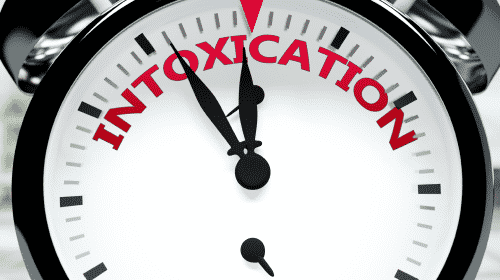
Of every 100,000 residents, 46 residents died due to drug intoxication.
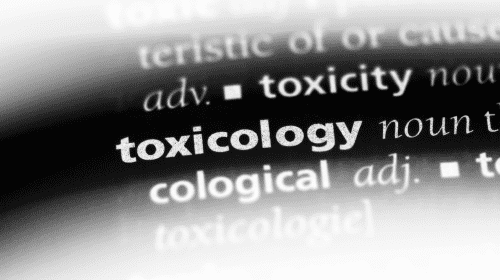
The most common drug detected in toxicology reports post-mortem is fentanyl.1
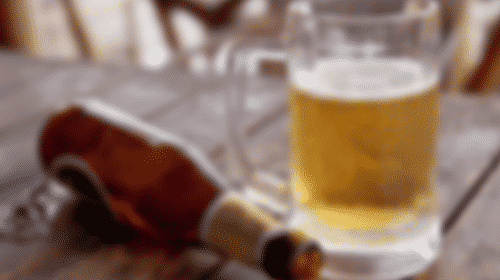
16.8% of Maricopa residents report binge drinking, higher than the state average of 15.1%.2
In the 2019 Maricopa County Community Survey, participants ranked the most significant health concerns in their community:2
- 48% cited alcohol and substance abuse
- 4% cited obesity
- 5% cited mental health issues
- 8% cited high blood pressure and cholesterol
- 6% cited cancers
Gilbert Fire and Rescue Human Services public safety calls in 2019 included:3
substance abuse calls
accidental drug overdose calls
intentional drug overdose calls
withdrawal-related calls
As you can see, there is a definite need for drug and alcohol rehab in Gilbert. Fortunately, there are options that fit the needs of each person, including costs.
Drug and Alcohol Laws in Gilbert
The Arizona Opioid Epidemic Act has allowed many initiatives to curb substance abuse, overdoses, and fatalities. Arizona is aggressive in stopping the epidemic with the following:11
Providing better access to naloxone, an opioid reversal medication
Updating prescription drug databases to prevent doctor shopping
Targeting and penalizing pill mills or doctors who over-prescribe narcotics
Holding manufacturers accountable who mislead consumers about their products
Upholding the Good Samaritan Law that protects people from arrest or prosecution when they are trying to save the life of another person, even if the person is misusing substances
Protecting those who seek help through the police with the Angel Initiative
Placing five-day limits of first-fill prescriptions of opioids
If you need assistance, we’re available 24/7 to help. Call us at
800-681-1058
(Who Answers?)
to speak with a support specialist who can help you explore accredited alcohol and drug rehab centers in Gilbert.
Choosing the Right Level of Care
Inpatient and outpatient drug rehabs in Gilbert offer many of the same individual and group therapies. Both aim to teach you early recovery skills that will help you avoid relapse and maintain recovery.
There are differences, however. Inpatient care involves staying overnight for a specific period and receiving clinical care around the clock.
- Medical detox in a hospital setting is usually the first program a person enters if he or she needs medication to assist with withdrawals and does not have a healthy support system at home. The detoxification process can range from one to two weeks.
- Inpatient care is a step below detoxification in the continuum of care. It also occurs in a hospital setting and continues medication management. Here you add individual and group therapies. Inpatient rehab stays can last between thirty and ninety days.
- Partial hospitalization programs (PHPs) provide at least twenty hours of individual and group therapies each week.
- Intensive outpatient programs (IOPs) offer ten or more hours each week of the same therapies. Both programs teach you and your family early recovery and relapse prevention skills.
- Standard outpatient care refers to services provided to you during convenient hours. Because you have a healthy support system, you can live at home while attending individual and group therapies.
- Aftercare refers to the ongoing support you will receive after you complete your rehabilitation program. This can be in the form of 12-step meetings, non-12-step meetings, therapy, transitional housing, and more.
Finding Specialized Drug Rehabs in Gilbert
When searching for the best program for you, don’t choose the first available opening. Take extra time to consider which type of treatment program will help you the most. Learn the unique characteristics that differentiate each drug and alcohol rehab in Gilbert. Features can include costs, amenities, behavioral therapies, alternative treatments, etc.
Holistic
Integrating holistic therapies with traditional therapies is a process many drug rehab centers in Gilbert are adopting. They realize treating a person’s mind, body, and spirit simultaneously can lead to more effective treatment and recovery.
Christian and Faith-Based
Just because someone misuses drugs or alcohol doesn’t mean they lack faith or spirituality. It can be just the opposite, which is why so many people succeed in Alcoholics Anonymous, Narcotics Anonymous, and other 12 Step facilitation groups.
Luxury
Luxury drug rehabs in Gilbert are the most expensive and have the best amenities and opportunities for the most personalized treatment plan. In a luxury treatment program, you can have a private room with a scenic view, access to luxury gyms, and outdoor experiences with personal coaches.
Dual Diagnosis
Mental health disorders often accompany substance use disorders. While it is hard to tell which one comes first, it is well-known that one is affected by the other. Therefore, treating the mental health disorder and the addiction simultaneously is crucial to reducing the likelihood of relapse.
What is Medication-Assisted Treatment (MAT)?
The medication-assisted treatment uses prescription medications to assist with withdrawal symptoms during the detoxification process. It is one part of a combination of counseling and recovery support programs. The Food and Drug Administration (FDA) has only approved certain medications to assist in opioid and alcohol treatments.
The benefits of MAT in drug and alcohol rehabs in Gilbert are that it:10
- Reduces the potential for relapse
- Increases safety from seizures, delirium tremens, etc.
- Reduces the risk of overdose
- Encourages people to stay in treatment longer
- Decreases criminal behaviors
- Improves a person’s ability to maintain employment while in early recovery
Methadone: Methadone is a synthetic opioid that acts differently than illicit opioids. Methadone has an extended-release that does not offer the immediate euphoric effects of misusing opioids such as heroin or prescription pain medicines.
Suboxone: Suboxone is a combination of two drugs, buprenorphine and naloxone. Buprenorphine acts like an opioid but is a much weaker version with a ceiling effect, meaning there is a limit to where the drug will stop increasing in effects. It levels off but still eases the withdrawal effects of opioids and alcohol.
Naltrexone: Naltrexone is a medication prescribed by a physician for easing withdrawal symptoms from opioids and alcohol. It is usually a pill taken daily or an injection once a month. Naltrexone binds to opioid receptors in the brain, blocking the effects normally produced by the drug. Even if you drink alcohol or take an opioid, you will not feel the effects.
Antabuse (Disulfiram): Antabuse or disulfiram aid in alcohol use disorder recovery, the first medication to assist in recovery to receiving approval from the Federal Drug Administration. When taking Antabuse, if you decide to drink alcohol, you will experience an unpleasant reaction.
Acamprosate: Acamprosate is a medicine prescribed by a doctor to help curb alcohol cravings and urges. It works by rebalancing chemicals in the brain associated with cravings, such as GABA. It will only work if you do not have alcohol in your system. When combined with counseling, it can be very effective.
Should You Travel for Drug and Alcohol Rehab in Gilbert?
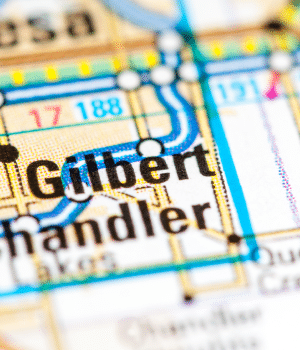 Gilbert feels like a small town inside a big city. There is a sense of community there, which is why there are so many mental health and substance abuse services for men, women, LGBTQ+, dual diagnosis, professionals, the unemployed, and anyone else needing help. There is a drug rehab in Gilbert that’s right for you, no matter your circumstances.
Gilbert feels like a small town inside a big city. There is a sense of community there, which is why there are so many mental health and substance abuse services for men, women, LGBTQ+, dual diagnosis, professionals, the unemployed, and anyone else needing help. There is a drug rehab in Gilbert that’s right for you, no matter your circumstances.
Gilbert’s neighborhoods have ample access to airports and transportation systems that make getting to and from treatment services an easy process.
Gilbert is home to nearly 249,000 residents living in various neighborhoods, all with benefits that aid in recovery. Gilbert drug rehabs exist in each neighborhood, along with community support groups and other recovery activities.
Take Downtown Gilbert, the Heritage District, for example. It offers many sober supporting activities, such as weekend markets where you can buy locally handcrafted food and art. You can take classes to learn a new hobby or further your education at Park University, hike or bike the trails, or spend a day on the lake.
The San Tan Village neighborhood offers unique experiences such as the urban farm development Agritopia and community gardening, which can be therapeutic for recovery. You can also find specialty shops in an open-air shopping center and take classes at the Arizona State University’s Polytechnic campus.
The Islands or the Neely Ranch neighborhood is home to many man-made lakes and riparian preserves, giving you various opportunities for fun, relaxation, and connecting with nature, all of which are important to recovery. You can enjoy watching wildlife from a distance or actively engaging in taking care of the environment.
Resources
- Opioid Overdoses Surveillance Report, Arizona, 2020-2021. (n.d.). Arizona Department of Health Services.
- FindTreatment.gov. (n.d.). FindTreatment.gov.
- Maricopa County Office of the Medical Examiner. (2020). 2020 Annual Report.
- Maricopa County Public Health. (2020). Maricopa County CCHNA: Community Health Status Report.
- The Williams Institute for Ethics and Management. (2019). A Community Needs Assessment Sponsored by the Town of Gilbert, Arizona.
- Maricopa County. (2022). Mental Health and Substance Use.
- Department of Insurance and Financial Institutions. (2022). Jake’s Law.
- Arizona Health Care Cost Containment System. (2022). Who Can Apply?
- Arizona Department of Economic Security. (2022). Medicare Assistance.
- National Committee for Quality Assurance. (2022). 2019-2020 NCQA Health Insurance Plan Ratings Summary Report.
- McCarty, D., Braude, L., Lyman, D. R., Dougherty, R. H., Daniels, A. S., Ghose, S. S., & Delphin-Rittmon, M. E. (2014). Substance Abuse Intensive Outpatient Programs: Assessing the Evidence. Psychiatric Services (Washington, D.C.), 65(6), 718-726.
- Substance Abuse and Mental Health Services Administration. (2022). Medication-Assisted Treatment (MAT).
- Office of the Governor. (2018). Arizona Opioid Epidemic Act.

